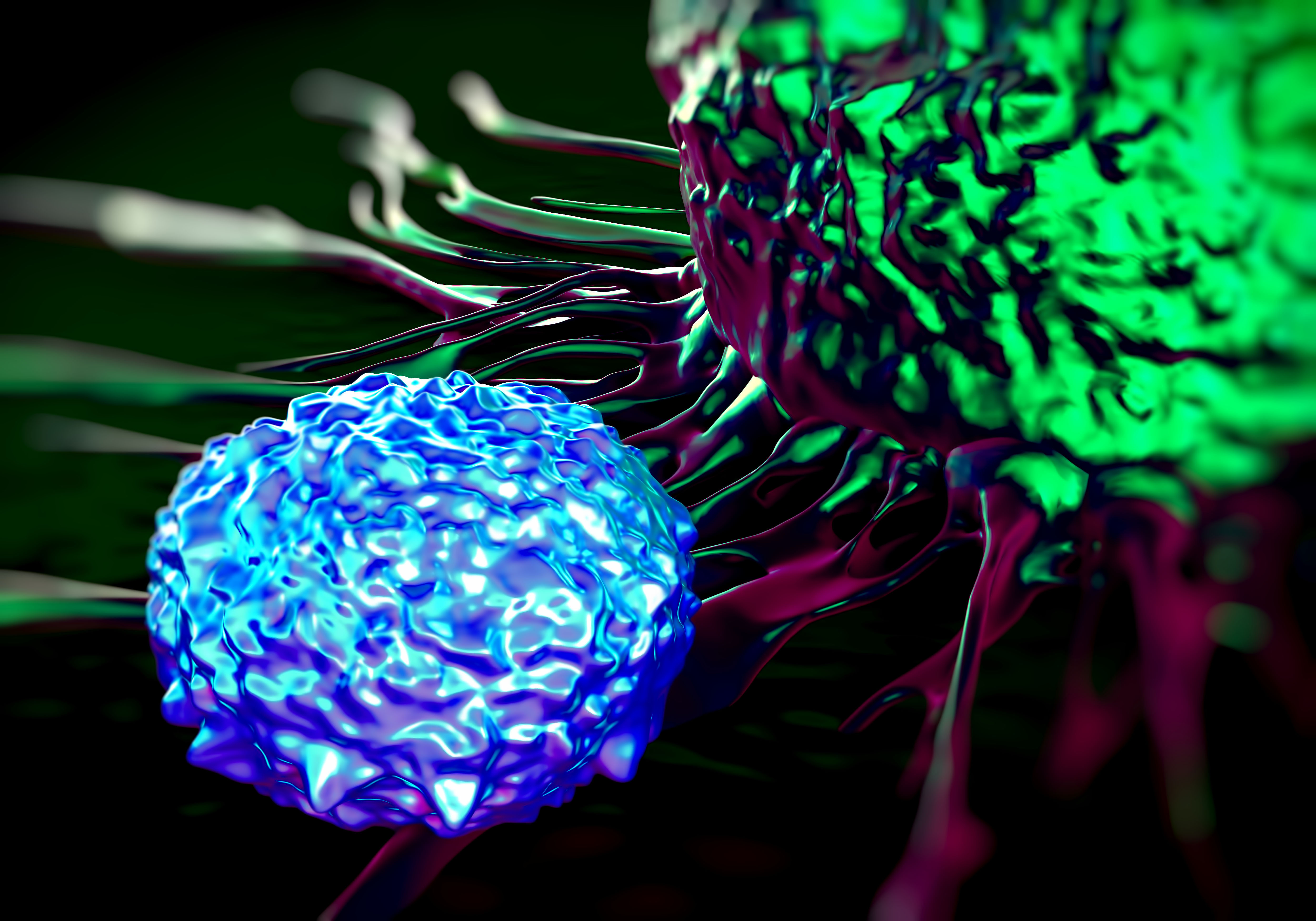
T cells attacking cancer cell
A CAR-T therapy trial by Juno Therapeutics that was halted last week following the death of three patients has been allowed to resume, the company announced.
Last week the U.S. Food and Drug Administration abruptly halted Juno’s clinical trial of an experimental treatment for leukemia after three patients died from swelling in the brain. The company said the deaths resulted not from the genetically engineered treatment but from fludarabine, a second chemotherapy drug used in its pre-treatment regimen. The FDA said the trial can continue if this chemotherapy drug is no longer used in the regimen.
Juno’s initial studies used only one chemotherapy drug, cyclophosphamide, to prime the immune system for the therapy.
CAR-T therapy involves extracting patients’ immune system T cells, genetically engineering them to target cancer cells, and infusing them back into the bloodstream.
Although the treatment is still unproven, CAR-T therapy has shown successful results in treating leukemia and lymphoma.
But CAR-T therapy can cause severe side effects, such as swelling in the brain and cytokine-release syndrome, a condition in which the infused T cells release a rapid amount of cytokines into the bloodstream, which can lead to dangerously high fevers and precipitous drops in blood pressure.
Read More: Juno, Kite Pharma Aim for 2017 CAR-T Therapy Approvals
Juno’s therapy, known as JCAR015, is in mid-stage testing, with 20 patients currently enrolled in the study.
Juno executives say they expect the therapy’s first approval to be in 2018. The company is competing against Kite Pharma and Novartis, all of which are racing to bring the first CAR-T therapy to market.
Filed Under: Drug Discovery



